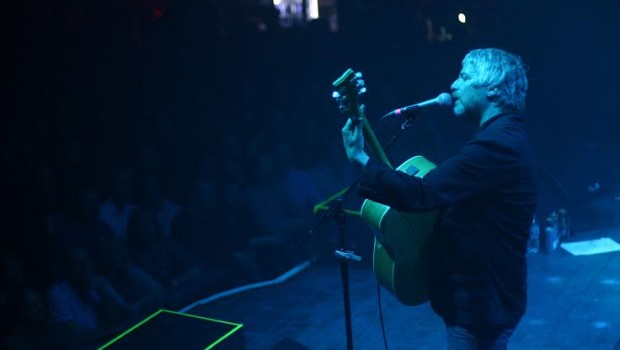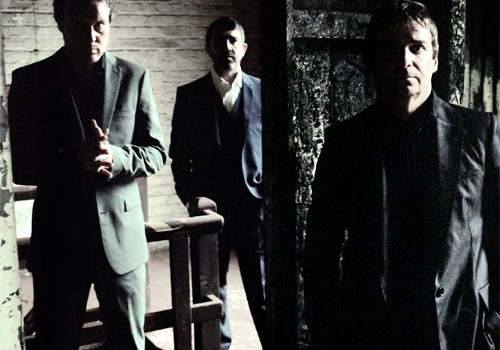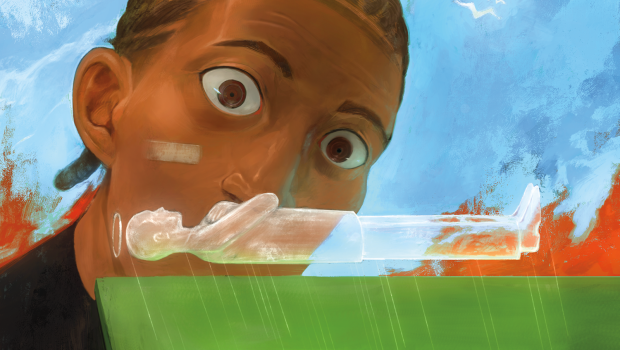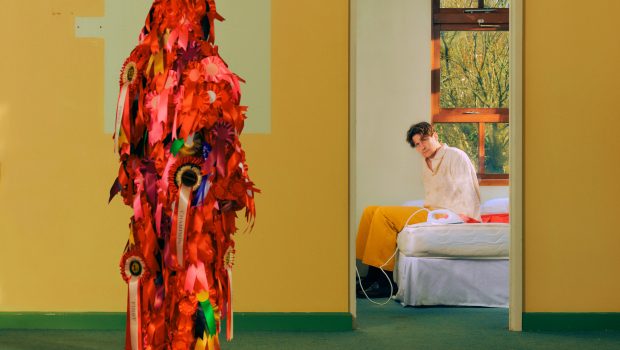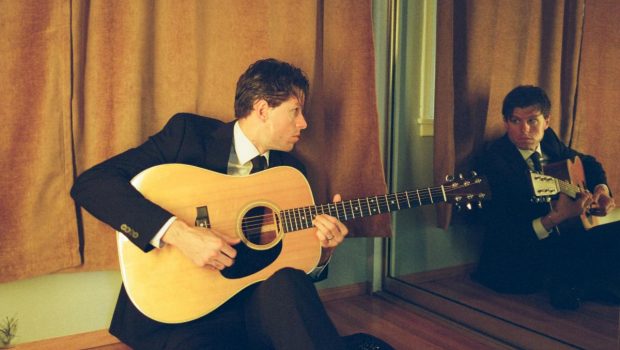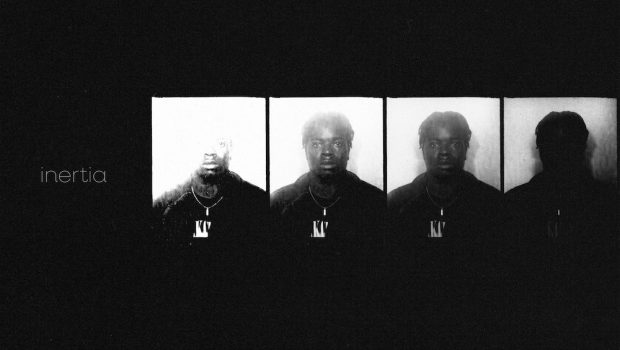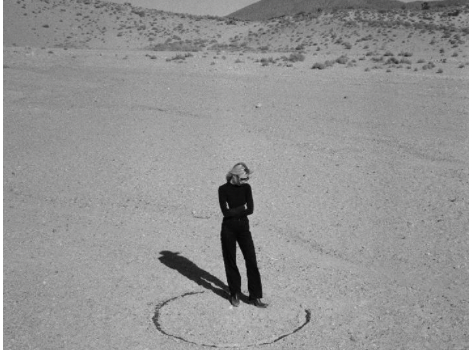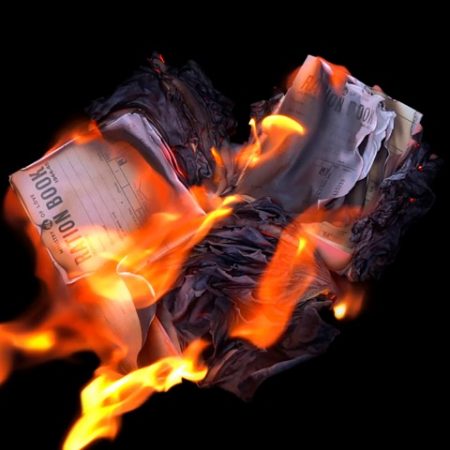 It is rare if not unique that an album lands in the Silent Radio inbox for which Les Dawson is cited as an influence. Fortunately, Peter Alexander Jobson’s ‘Burn The Ration Books of Love’ does not contain any mother-in-law jokes and the piano playing is of a far superior standard to Dawson’s onstage shenanigans. Instead, the record answers the question of what Serge Gainsbourg would have sounded like if he had been from the north-east of England and bears the compositional hallmarks of the likes of Tom Waits, Leonard Cohen and Hank Williams. There is a distinct northern quality to the record, even though the musical styles are nothing like those that are commonly associated with the wider north (bleak, industrial, Joy Division).
It is rare if not unique that an album lands in the Silent Radio inbox for which Les Dawson is cited as an influence. Fortunately, Peter Alexander Jobson’s ‘Burn The Ration Books of Love’ does not contain any mother-in-law jokes and the piano playing is of a far superior standard to Dawson’s onstage shenanigans. Instead, the record answers the question of what Serge Gainsbourg would have sounded like if he had been from the north-east of England and bears the compositional hallmarks of the likes of Tom Waits, Leonard Cohen and Hank Williams. There is a distinct northern quality to the record, even though the musical styles are nothing like those that are commonly associated with the wider north (bleak, industrial, Joy Division).
Jobson is best known as a member of I Am Kloot but in subsequent years has built a reputation as a composer for TV. His credits include the theme tune for the ‘Cold Feet’ revival, the score to ‘The A Word’ and the ‘Hullraisers’ soundtrack. ‘Burn The Ration Books Of Love’ was recorded in his home studio with Jobson laying down most of the instrumentation himself.
The album begins offputtingly with a live recording of ‘Holiday’, the audience laughter feeling excessive for a piano accompanied reflection on attempting to recapture the spirit of a first meeting with a romantic partner. The remaining ten tracks reach a far higher level. ‘Mountain’ has country-style guitar and bright little explosions of sound while Jobson’s baritone sounds particularly lush. It is reminiscent of The Silver Jews, even down to the pleasing turn of phrase, a particular favourite being, “there’s no turn unstoned”.
On ‘The Night of the Fire’, he recounts an autobiographical tale of how as an 11-year-old he accidently set his Northumbrian village on fire. His voice sounds especially worn and lived in while the orchestration captures the tingling fear and exhilaration of the ensuing blaze. Given a few listens, it becomes increasingly apparent how integral the arrangements are to Jobson’s songs and ‘Taxi Supplies’, which starts as a piano-led ballad really sparks into life with the strings that herald the taxi’s arrival, seen as bringing nighttime joy.
‘Go Go’ paints the irrevocable breakdown of a relationship with his pleas to go sweetly, not to hide his keys, steal his passport, put the windows through or break his ribcage, all accompanied by delicate country guitar and the sound of a stream flowing gently. ‘Foolish Boy’ is a brief, seventy-second interlude, in which Jobson laments his foolishness before ‘Please Please Please’, not to be mistaken for the Sabrina Carpenter song of the same title. It continues a long history of supplication in song, dating at least as far back as The Beatles’ ‘Please Please Me’. Jobson’s take on this tradition uses a combination of his murmured voice and restrained but sparkling instrumentation to devastating effect.
‘Home’ is another brief track, reflecting on the perils of homelessness and its standout line, “Every day now is a duel between me and the cold”. In complete contrast, the spoken-word ‘Kesta’ is an eleven-minute narrative that brings his Northumbrian accent to the fore, recalling an old friend and his scrapes with the law. It gives Jobson space to produce an atmospheric tour-de-force, from bluesy slide guitar, moody bass and piano runs to allowing dramatic pauses in the music for footsteps and the clang of prison gates. Kesta “was more like a boxer on a drumkit… who played something quite unique” and one of his ruses was to sell polo mints to clubbers under the guise of something much stronger. For such a lengthy piece, it remains constantly engrossing, never allowing interest to flag.
‘Just Cause I’m Dead’ feels like a conversation between BC Camplight’s ‘When I Think of My Dog’ and Randy Newman in its cocktail piano jazz instrumentation. It reflects on humanity’s failed attempts to control its own mortality, the notion that “I was only halfway through, I’d only got started in truth, well there is so much more left to do”. The concluding title track begins with strings that conjure an atmosphere of books being burned before introducing the title line which is a quote from Michael Conroy Harris’s poem, ‘Official Heat’. It is part of an intriguing set of images, this idea that love could be rationed but also giving cause to recall Ray Bradbury’s ‘Fahrenheit 451’ about the governing powers burning of books with which they disagreed. It reflects a growing intolerance in the world that cavils at expertise or thoughtfulness, exemplified recently by the populist Slovakian government slapping a huge VAT rise on books which they claimed are only for the rich.
‘Burn The Ration Books Of Love’ does pose many questions and gives much pause for thought. It is a deeply idiosyncratic record and brilliantly composed with an ideal balance between intimacy and expansiveness. While it has many familiar reference points, there is nothing quite like it.
Peter Alexander Jobson: Burn The Ration Books Of Love – Out 15 November 2024 (Alexander Song Ltd)
